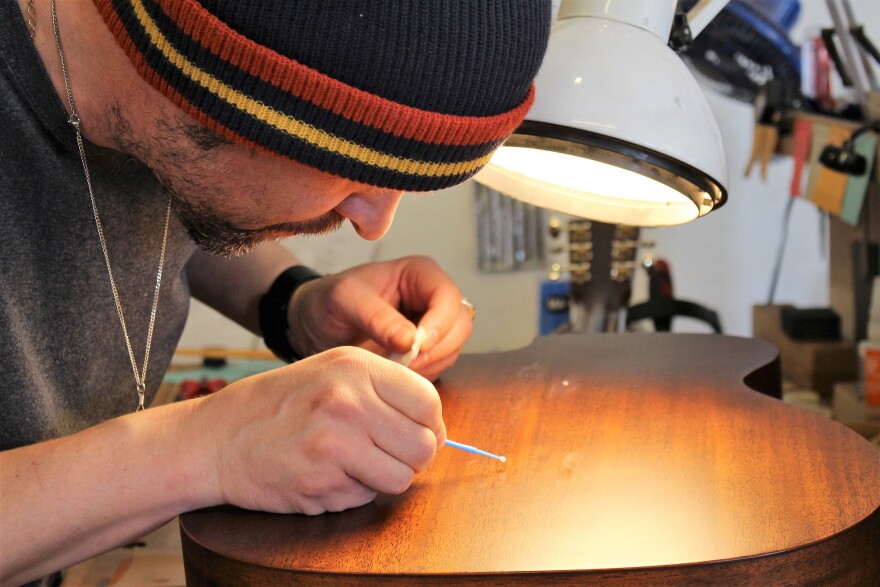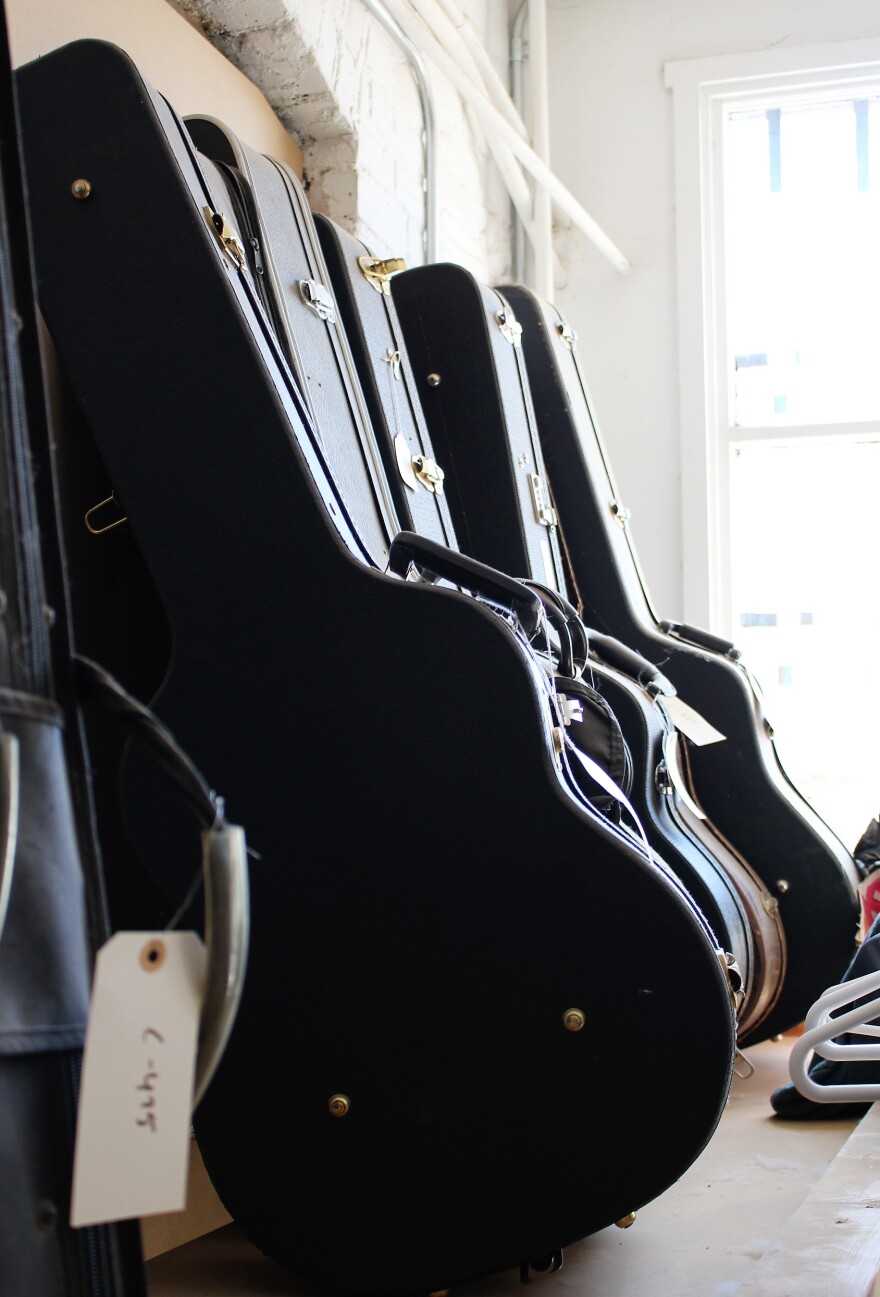Over the years, Edward Victor Dick has seen a lot of highs and lows in the guitar market.
“You know, in the mid-’80s we thought acoustic instruments were going to be complete dinosaurs because people were playing electric instruments and samplers,” said Dick, the owner of Denver’s Victor Guitar. “Then Eric Clapton came out with his ‘Unplugged’album.
“After 9/11, it was kind of a bit of a strange experience because business just dropped like a stone,” Dick added. “And we all thought the world was gonna end.”

It was during this economic slump that one of his customers made a suggestion: Why not teach a guitar-building class? Something to take people’s minds off their worries and bring in new business.
So, he did.
“That class filled up,” Dick said. “The next class filled up, and it’s been going ever since.”
Eventually, it turned into the Colorado School of Lutherie, dedicated to teaching the craft of constructing stringed instruments. Initially, most of Dick’s students were just looking for something to keep them busy.

“Slowly over the years it’s kind of developed where we still have quite a few -- what I call hobby/retired people -- but we also have a lot of 20 year olds who are looking at doing this as a career,” he said.
Like 26-year-old Mike Britton, who moved to Denver from Houston seven years ago.
“I’ve been wanting to build guitars for a long time and I actually ended up welding, instead, and kind of putting it off for a little while,” Britton said. “And I got out here and decided I didn’t want to do welding and found Edward’s shop, and haven’t looked back since.”
After taking several classes, Britton is now an intern at the shop. In that time, he’s built five guitars. The one he’s working on right now will be his last — in Colorado at least.
“Tomorrow is my last day here and I’m moving back to Houston,” he said. “My uncle builds guitars and he’s giving me his shop. So, I’m taking this extremely seriously and really trying to make a real run at it.”
For Heath Rothgeb, Britton’s story is a familiar one.
“I was just kind of spinning my wheels making eye glasses for people I never saw,” said Rothgeb, 36, of his life as a lab tech before he began taking classes at CSL.

“I started as an internship,” he said, while repairing a cracked back on a guitar. “I took a three-month (intensive) program here, and it just kind of snowballed and developed from there.”
Now Rothgeb works for Victor Guitar as a luthier and teaches at the school. He said his job title invites a lot of questions.
“It’s pretty cool, most people don’t know what luthier means so, I have to kind of explain it to them,” he said.
When Dick started out more than 40 years ago, there weren’t schools like CSL. He learned how to build guitars by fixing them.


“I would buy a broken instrument, something that had a broken neck for example, and I would make a new neck. Something that had a broken top — I’d make a new top,” he said. “After a few years of doing that, I realized I had replaced every part of the instrument, so building wasn’t that big of a jump for me because I’d already repaired about 5,000 instruments by the time I actually built something.”
Today there are online courses and YouTube videos, but Dick said it’s still a craft largely built on hands-on experience. While mass-market guitar manufacturers and chain retailers are struggling — the 116-year-old Gibson company is on the verge of bankruptcy -- lutherie shops along Colorado’s Front Range are growing.
“Everyone that has a guitar will need to have it serviced at some point,” he said. “They’re made out of wood. There’s about 150 pounds of tension that’s tugging at the end of the neck. And especially given the climate in Denver, which is particularly dry, the need for repairs is ongoing.”
That said, shops like his aren’t going to be taking over the market, Dick said.
“The mass market is always going to be the mass market,” he said. “There’s always going to be people in the market for an inexpensive guitar — whether it’s made in China or America or wherever — to get started. But as musicians get to be a little bit more discerning, they start to look at other options.”

Most people get started with an acoustic guitar in the $200 to $500 range, Dick said. A professional-level guitar typically starts around $2,000. Dick’s custom-made guitars start at about $5,000.

“It’s a bit on an irony in our business that the people who can afford the instruments are not necessarily the best players,” Dick said. “A lot of them are people who I would call ‘avid players,’ not necessarily professionals. (They are) people who can afford two or three or four or five instruments or more. People who want something customized — who want something of a little bit better quality.”

Which is why, Dick said, his classes are full, and internships are booked through the rest of the year. There’s so much demand, he’s thinking about expanding beyond the guitar. He’s added ukulele classes and is thinking about programs for mandolins, banjos and electric guitars.
That’s music to the ears of students like Britton.
“For me, building guitars is a perfect marriage for everything I love,” he said. “It’s music. It’s building. It’s applied science. It’s history, culture. It’s just — all the cool stuff.”






